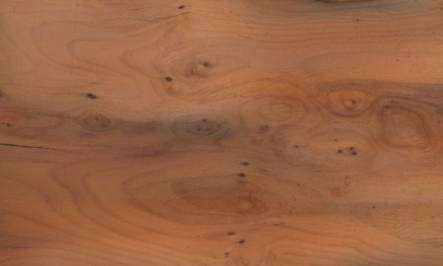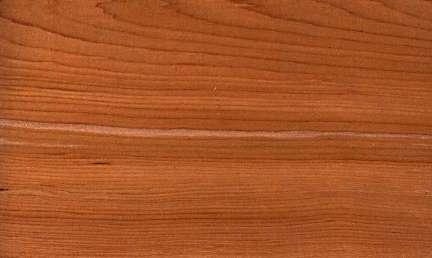 
Common yew (Taxus baccata)
Family: Taxaceae
Common names: Common yew, European yew, Idegran, Yew, Yewtree
Distributed in: Burma, Denmark, France, Germany, India, Iran, Italy, Myanmar, Portugal, Russia, Spain, Sweden, United Kingdom (Africa, Eastern Europe, Mediterranean Sea Region, Oceania and S.E. Asia, Western Europe)
Distribution overview: The species occurs in the Scandinavian countries, Western Europe, including the United Kingdom, western parts of Russia, North Africa, the Mediterranean region including Iran, and along parts of the Himalayan mountain ranges. It prefers lime-rich soil, but can also grow on any well-drained soil. Wild groves are reported to occur on open, lime-rich areas, but on clay soils usually found under Oak trees. It grow under Beech on light soils. Many cultivars of the Common yew are reported to exist, and they differ from the forest trees in the form and arrangement and color of their foliage. The two most well-known are 'Dovastoniana' or West Felton yew, and 'Fastigiata' or Irish yew.
Common uses: Bows, Boxes and crates, Brush backs & handles, Cabinetmaking, Carvings, Chairs, Decorative veneer, Door, Flooring, Furniture , Furniture, Interior construction, Joinery (external): ground contact, Joinery, Lock gates, Marquetry, Paneling , Paneling, Posts, Rustic furniture, Tables , Tables, Toys, Turnery, Vats, Veneer, Veneer: decorative, Walking sticks
Product sources: Material in large dimensions are not readily available since Yew trees are usually small to medium-sized, and are of poor form. Supplies of Yew in the form of veneers are also very limited, and are very expensive when available.
Environment profile: Status has not been officially assessed
Tree size: Trunk diameter is 150-200 cm
Colors: the heart isYellow, Yellow to golden-yellow to orangeand the sapwoodWhite to yellow, Yellow.The grain isWavy, the textureMediumand the lusterMedium
Natural durability: Susceptible to insect attack, Very durable
Odor: No specific smell or taste
LightInduced Color Change: Darker
Kiln Schedules: UK=B US=T2C2/T2C1 Fr=2
Kiln Drying Rate: Naturally dries quickly
Drying Defects: Slight distortion may occur during drying , Splitting
Ease of Drying: Rapidly
Tree Identification: Bole/stem form is fluted
Comments: General finishing qualities are rated as good Wastage during conversion is rather high because of the poor form of Yew logs. Waste Factor
Blunting Effect: Moderate
Boring: Variable results of size and smoothness
Cutting Resistance: Easy to saw
Gluing: Use special attention for best results
Mortising: Fair to Good
Moulding: Poor to Very Poor
Movement in Service: Poor to Very Poor
Nailing: Fairly Easy to Very Easy, Possible if prebored
Planing: Very Good to Excellent
Resistance to Impregnation: Resistant sapwood
Response to hand tools: Variable qualities
Sanding: Very Good to Excellent Results
Veneering qualities: Suitable for slicing, Suitable for slicing into decorative veneers
Steam bending: Very good
Screwing: Fairly Easy to Very Easy
; Turning: Turns with moderate ease
Polishing: Polishes and finishes very well; Staining: Finish is generally satisfactory;
- Numerical data Metric
- Numerical data English
- Strength properties
- References
 |
 |
 |
 |
| Item |
Green |
Dry |
Metric |
| Specific Gravity |
|
0,64 |
|
| Density |
|
673 |
kg/m3 |
| Bending Strength |
|
|
kg/cm2 |
| Crushing Strength |
|
|
kg/cm2 |
| Hardness |
|
|
kg |
| Impact Strength |
|
|
cm |
| Shearing Strength |
|
|
kg/cm2 |
| Stiffness |
|
|
1000 kg/cm2 |
| Tangential Shrinkage |
|
|
% |
| Radial Shrinkage |
2 |
|
% |
| Weight |
657 |
528 |
kg/m3 |
| Maximum Load |
|
|
cm-kg/cm3 |
| Toughness |
|
|
cm-kg |
| Static Bending |
|
|
kg/cm2 |
|
 |  |  |  | | Item | Green | Dry | English | | Density | | 42 | lbs/ft3 | | Specific Gravity | | 0.64 | | | Weight | 41 | 33 | lbs/ft3 | | Radial Shrinkage | 2 | | % | | Tangential Shrinkage | 5 | | % | |
Density (dry weight) = 38-45 lbs/cu. ft. 1
Density (dry weight) = 46-52 lbs/cu. ft.
Shrinkage, Radial = very small
Shrinkage, Tangential = very small
Shrinkage, Tangential = small
Heavy
Hard
Density (dry weight) = 53-60 lbs/cu. ft
Crushing strength = medium
Strength in bending and crushing are rated as medium, and the timber has rather low stiffness and resistance to shock loads. Common yew has been described as hard, strong, tough, and rather heavy for a softwood.
Bolza, E.,1976,Timber and Health,Div. Building Res. C.S.I.R.O. AustraliaBoone, R.S., C.J. Kozlik, P.J. Bois and E.M. Wengert. 1988. Dry Kiln Schedules for Commercial Woods: Temperate and Tropical. United States Department of Agriculture, Forest Service, General Technical Report FPL-GTR-57, Forest Products Laboratory, Madison, Wisconsin.British Woodworking Federation. 1995. Which Wood . Published by the British Woodworking Federation, Broadway House, Tothill Street, London.Brown, W.H.,1978,Timbers of the World, No. 6 Europe,TRADA, Red Booklet SeriesClifford, N.,1957,Timber Identification for the Builder and Architect,Leonard Hill (Books) LTD. LondonCoombes, A.J.1992.Trees - The Visual Guide to More than 500 Species from Around the World.Eyewitness Handbooks.Published in the United States by Dorling Kinderley, Inc, New York.Distributed by Houghton Mifflin Company, Boston.Dallimore, W. and Jackson, A. Bruce,1966,A Handbook of Coniferae and Ginkgoaceae Fourth Ed. Revised by S.G.,Harrison,Edward Arnold (Publishers) Ltd. LondonFindlay, W.P.K.,1975,Timber: Properties and Uses,Crosby Lockwood Staples London,224PPForest Products Research Laboratory U.K.,1957,A Handbook of Softwoods,Department of Scientific and Industrial Research Forest Products Research,HMSOForest Products Research Laboratory, U.K.,1937,A Handbook of Home-Grown Timbers,HMSOForest Products Research Laboratory, U.K.,1957,Timbers for Flooring,Forest Products Research Laboratory, Princes Risborough, Bulletin, No.40Forest Products Research Laboratory, U.K.,1967,The Steam Bending Properties of various timbers,Forest Products Research Laboratory, Princes Risborough, Leaflet,No.45Howard, A.L.,1948,A Manual of Timbers of the World.,Macmillan & Co. Ltd. London 3rd ed.I.U.F.R.O.,1973,Veneer Species of the World,Assembled at F.P.L. Madison on behalf of I.U.F.R.O. Working Party on,Slicing and Veneer CuttingKribbs, D.A. 1959. Commercial Foreign Woods on the American Market. Buckhout Lab., Dept. of Botany, The Pennsylvania State University, University Park, Pennsylvania.Lincoln, W.A. 1986. World Woods in Color. Linden Publishing Co. Inc. Fresno, California.Mitchell, A.F. 1985. Conifers. Forestry Commision Booklet No. 15. Forestry Commission, Her Majesty's Stationery Office, London.Nairn, P.M., Editor. 1936. Wood Specimens - 100 Reproductions in Color -A Series of Selected Timbers Reproduced in Natural Color with Introduction and Annotations by H.A. Cox. The Nema Press, Proprietors of Wood, London.Patterson, D. 1988. Commercial Timbers of the World. Fifth Edition. Gower Technical Press, Aldershot, UK. ix + 339 pp.Patterson, D.,1988,Commercial Timbers of the World, 5th Edition,Gower Technical PressRedding, L.W.,1971,Resistance of Timbers to Impregnation with Creosote,Forest Products Research Laboratory, Princes Risborough, Building Research,Establishment Bulletin No.54 pp.43Rendle, B.J.,1969,World Timbers (3 Vols.,Ernest Benn Ltd. LondonSmith, D.N.,1959,The Natural Durability of Timber,Forest Products Research Laboratory, Princes Risborough, Building Research,Establishment Record,No.30Stone, H.,1924,The Timbers of Commerce and their Identification,William Rider & Sons Ltd. LondonT.D.A.,1942,Timber Leaflet No.50 Yew (Taxus baccata,TRADA Timber LeafletT.R.A.D.A.,1942,Home-grown timber trees - their characteristics, cultivation and Uses,TRADATewari, M.C., Jain, J.C.,1980,Utilization of Secondary Species,Journal of the National Building Organization 25(2) pp1-6Timber Development Association Ltd.,1955,World Timbers (3 Vols.,Timber Development Association Ltd.
|









